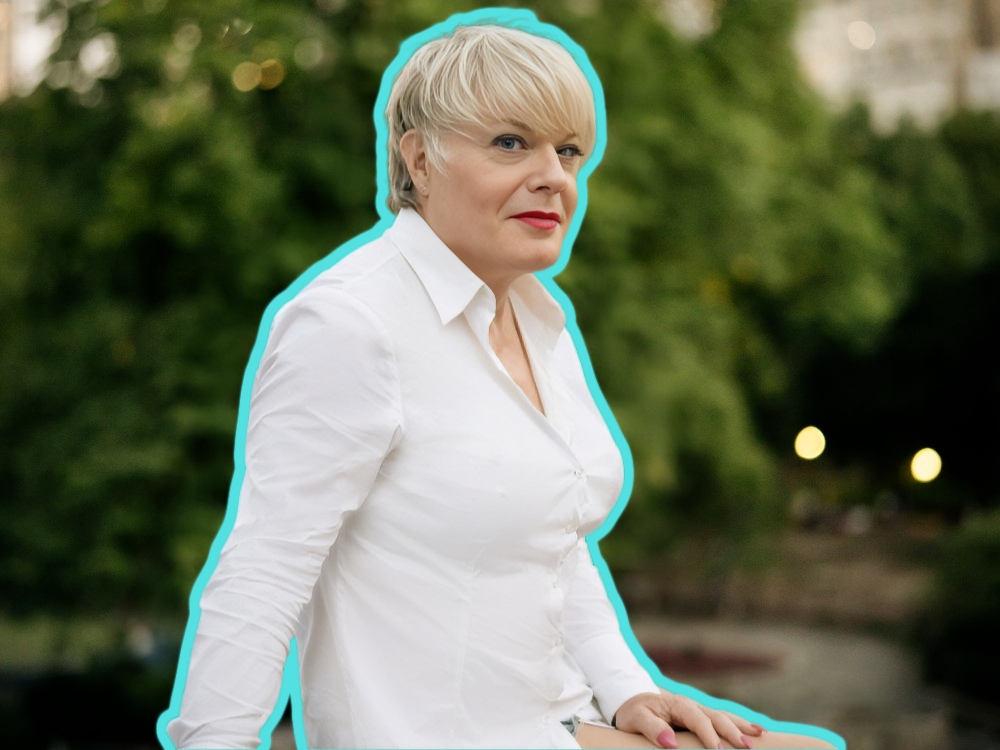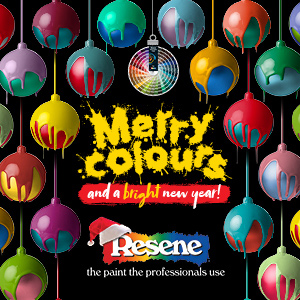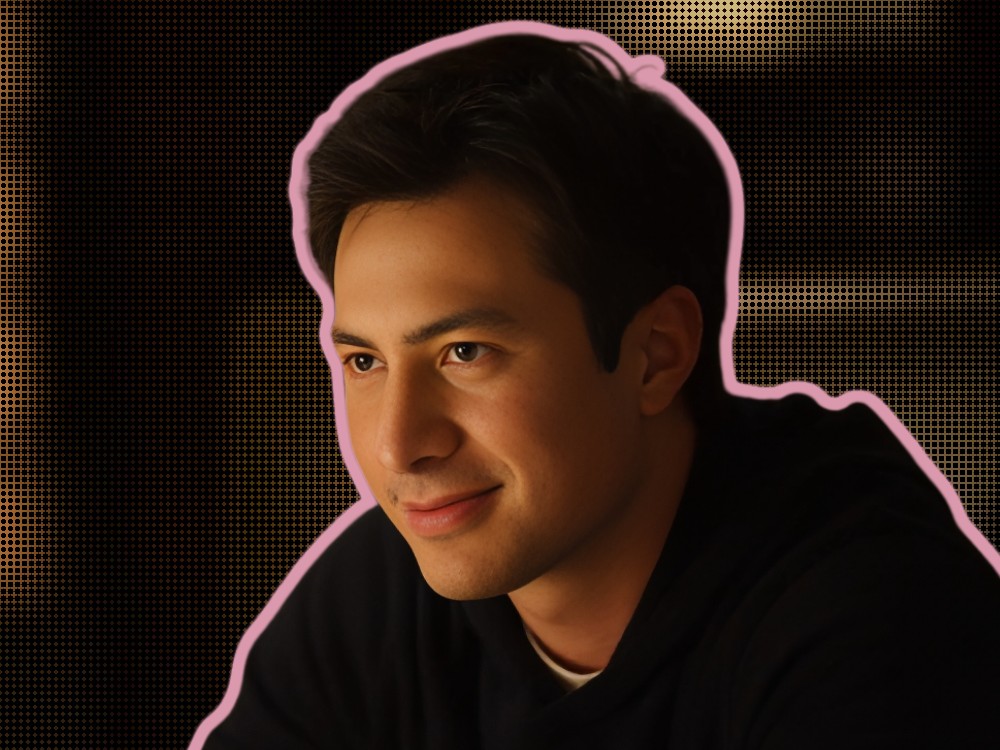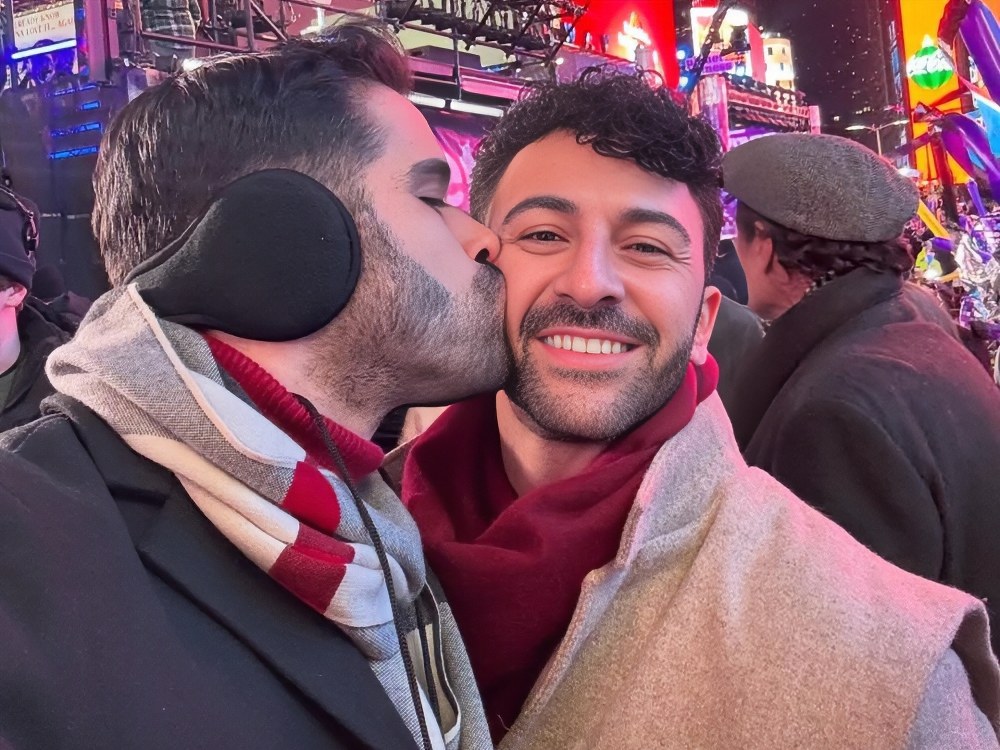As she prepares to return to Aotearoa with The Remix Tour, the comedian, actor, marathon runner and politician sits down with YOUR EX’s Oliver Hall to discuss remixing trans narratives and the power of pushing forward, one step at a time.
There aren’t many comedians whose material has taken on a life of its own quite like Suzy Eddie Izzard’s. For a generation of queer kids — many of whom encountered her through a scratched DVD of Dress to Kill — Eddie didn’t just tell jokes. She rerouted history. In one breath, she’d be discussing God’s questionable management style, and in the next she’d be reimagining Darth Vader arguing with a canteen cashier over trays. Her comedy didn’t punch down or rely on cynicism. It was expansive, curious, profoundly odd, and in its own quiet way, radically queer.
This month, Eddie returns to New Zealand with The Remix Tour, a show built from 35 years of her most beloved material. Except she doesn’t simply perform the classics; she rewires them. Routines like the infamous Death Star Canteen reappear, but suddenly Daphne du Maurier wanders into the scene. Jokes mutate, stories double back on themselves. It isn’t nostalgia — it’s evolution.
“I have to make myself laugh,” she tells me. “If I’m just repeating the same thing, it dies for me.”
We meet over a video call on a balmy British evening in late August. Eddie, who has run more than 80 marathons for charity, often on consecutive days, speaks with the assured calm of someone who has personally tested the limits of endurance and found them useful.
When I ask whether performing on stage as Suzy in 2025 feels different compared to being the “executive transvestite” that captured comedic hearts in the 1990s, she doesn’t hesitate.
“I’ve tried not to make it different. Some people transition and feel they’re a different person or character. I didn’t feel that. I’ve always felt gender-fluid,” she says. “When I turned 50, I thought, ‘Well, for the next 50 years, I’ll express myself in a more feminine way.’ But I don’t act differently. I’m still irascible. If someone gives me a hard time in the street, I’ll give them a hard time back.”
She grins.
“Some people call me Eddie, some call me Suzy, my brother alternates between the two. I have two live names. No dead names. I’m quite happy with that.”
The press release for The Remix Tour promises that “no two nights will be the same”. When I bring that up, she mock-protests, “Have I said that? In a court of law?” then concedes that yes, there’s truth in it.
“I tend to go on stage not quite knowing what I’m going to say. Fully improvised shows don’t always work, but I need an element of risk. If I’m not enjoying it, I’m not firing on all cylinders.”
This blend of discipline (she performed all 23 characters from Hamlet in a solo production in New York last year) and mischief is a precision balance few comedians can hold. Eddie is part of that lineage of British surrealists — Monty Python are her self-described “Olympian gods” — but she’s also the only one among them who can do it in four languages.
French, German, Spanish, English. She has done comedy tours in all of them. She calls it “comedy without borders”. And perhaps that’s what makes her so vital now, especially in a moment where borders and identities have become weaponised language.
So I ask the question I’ve asked many LGBTQ+ artists over the last two years: is it harder to be funny in 2025, given the intensity of political debate around trans lives?
“No,” she says simply. “It’s completely fine, because I don’t go in banging a gong about being trans. I just say I happen to be trans. I don’t do party politics — that dates very quickly. Instead, I’ll talk about things like: why would a sentient God create dinosaurs for 180 million years, and then give us just two million? And we’ve already invented poetry and Scrabble. We’re doing pretty well!”
And yet, she acknowledges the noise, the spectacle, the headlines, the politicians who have rediscovered trans lives as a convenient scare tactic.
“Yes, the right wing is kicking off. They want to drag the world back to the 1930s while the rest of humanity is trying to move forward into the 2030s. But it’s easier now to be out (than it was in the 90s). A trans woman just won the Comedy Award at the Edinburgh Fringe this year. That’s progress. The noise is just bigger.”
That friction — progress on the ground, hysteria in the headlines — is familiar to many queer Kiwis. “Remember the noise around marriage equality?” Eddie asks. “It was huge. Can you hear it now? No. It’s gone.”
This is where Eddie surprises me. Most people I interview in our communities carry a tone of urgency about threats to progress. Eddie is not dismissive, but she refuses despair.
“I’m a relentless positivist,” she says. “See a negative, do a positive. And if you can’t change something instantly, keep your head in a good place and start doing something positive anyway. We forget how much has already been gained: marriage equality, hate crime laws, visibility, civil rights. Count the blessings. Smell the roses.”
Importantly, she’s not sentimental about it. She brings up the Weimar Republic, a period of queer and trans cultural flourishing in 1920s Berlin, and the devastation that followed.
“Things seemed very positive, then it went bad… then worse… then murder, then concentration camps,” she says evenly. “And yet after Hitler, Konrad Adenauer restored rights to all German citizens. Germany rebuilt itself from that hell.”
Then she says what might be the thesis of her entire worldview:
“These times will pass. When they do, we’ll come out the other side, and we keep edging things forward. You don’t want to leap too fast — it doesn’t work. The way to make lasting progress is to keep moving things steadily.”
For someone who has literally run 27 marathons in 27 days in honour of Nelson Mandela, and 32 marathons on a treadmill streaming live for charity because a global pandemic got in the way, this slow, steady mantra lands with authority. She knows something about putting one foot in front of the other.
After discussing politics, we return to the sillier stuff. I ask how she’ll spend her downtime in Aotearoa. She lights up.
“Cycling,” she laughs. “I like pootling about, I never really plan it. There’s something great about bicycles. I tried the electric ones — they’re fun — but now I’m back to using body power. It’s healthier. And you can freewheel downhill!”
Before we wrap, I ask if she has anything she’d like to say specifically to her New Zealand LGBTQ+ audience, especially those coming to see her for the first time.
“If you’ve never seen my material and you’re thinking, ‘Is it going to be two hours of transgender content?’ — it isn’t. I do surreal bollocks. It jumps between silly and intelligent constantly. I just happen to be trans. And I’m very positive about it.”
Then, in one final shrug that feels like the perfect epilogue to a three-decade career of turning identity into something expansive rather than confining, she smiles and says:
“Nobody says, ‘Oh, you play guitar and sing songs — and you’re straight?’ No one gives a shit about being straight. So no one should give a shit about being trans either. Be out, be proud, be relaxed.”





























